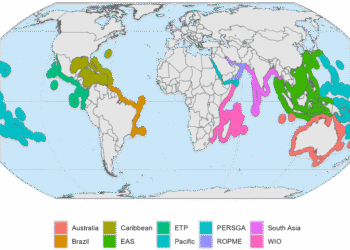1. What Are CVV and CC Dumps?
What Are CC Dumps?
CC dumps refer to stolen data extracted from a credit card’s magnetic stripe. This data often includes:
- Card Number: The 16-digit number unique to each credit card account.
- Expiration Date: The date until which the card is valid.
- Cardholder’s Name: The name of the individual to whom the card is issued.
- Additional Data: In some cases, extra details such as the card’s PIN or track data may be included.
Cybercriminals obtain this information through various illegal means, including data breaches, phishing, or skimming devices that capture card details during legitimate transactions.
2. SwipeStore’s Claims
Features and Services
SwipeStore may offer various features to entice users, including:
- User-Friendly Interface: A design that simplifies the process of browsing and purchasing stolen data.
- Quality Assurance: Claims that the data is fresh and less likely to be detected by financial institutions.
- Customer Support: Support services that might include guidance on how to use the stolen information or troubleshooting assistance.
These features are aimed at building trust and encouraging repeat business among cybercriminals.
3. The Risks of Engaging with SwipeStore
Purchasing and using stolen credit card information from platforms like SwipeStore is illegal in most jurisdictions. The consequences of engaging in such activities include:
- Criminal Charges: Individuals involved in buying, selling, or using stolen CVV and CC data can face serious legal consequences, including hefty fines and imprisonment.
- Law Enforcement Actions: Authorities are increasingly using sophisticated technologies and international cooperation to track down and prosecute cybercriminals involved in the trade of stolen data.
Financial and Personal Risks
The financial and personal risks of dealing with stolen CVV and CC dumps are substantial:
- Financial Losses: Fraudulent transactions made with stolen data can be traced back to the perpetrators, resulting in financial losses and potential legal action.
- Exposure to Other Criminals: Engaging in cybercrime can expose individuals to further exploitation, such as extortion or blackmail, from other criminals within the underground market.
Ethical Implications
The ethical implications of using stolen credit card information are severe:
- Harm to Victims: Victims of credit card fraud experience financial loss, emotional distress, and long-term damage to their credit scores.
- Contribution to Crime: Participating in the trade of stolen data perpetuates a cycle of crime that negatively impacts individuals, businesses, and the broader financial system.
4. The Broader Impact of Credit Card Fraud
On Individuals
The primary victims of credit card fraud are individuals whose information has been stolen. They may face unauthorized charges, a lengthy process of disputing fraudulent transactions, and the stress of addressing the fallout. Even when financial institutions cover the losses, victims endure significant inconvenience and emotional turmoil.
On Businesses
Businesses are also affected by credit card fraud:
- Financial Costs: Merchants who process fraudulent transactions often bear the costs of chargebacks, leading to financial losses and increased operational expenses.
- Reputation Damage: Repeated fraud incidents can damage a business’s reputation, resulting in loss of customer trust and potentially higher fees from payment processors.
On the Financial System
Credit card fraud impacts the broader financial system:
- Increased Costs: Financial institutions must invest heavily in fraud prevention and security measures, costs which are often passed on to consumers through higher fees and interest rates.
- Erosion of Trust: Widespread fraud undermines trust in digital transactions, making consumers more hesitant to engage in online banking and shopping.
5. Alternatives to Engaging in Illegal Activities
Explore Legitimate Opportunities
Instead of risking your future with illegal activities like purchasing CVV and CC dumps, consider focusing on legitimate ways to earn income. The digital economy offers numerous opportunities for entrepreneurship, freelancing, and remote work, which provide financial rewards without the associated risks of cybercrime.
Pursue a Career in Cybersecurity
If you have an interest in cybercrime, consider directing that interest towards a career in cybersecurity. The demand for cybersecurity professionals is growing, with many opportunities to work in this field, helping to protect individuals and businesses from cyber threats. A career in cybersecurity can be both rewarding and fulfilling.
Promote Ethical Behavior Online
Encouraging ethical online behavior is crucial for maintaining a safe and trustworthy digital environment. By rejecting illegal activities like purchasing stolen CVV and CC data, and promoting honesty and integrity, you contribute to a culture of responsibility and accountability in the online world.
6. Conclusion
While SwipeStore may present itself as a leading provider of “trusted” CVV and CC dumps, engaging with such platforms carries significant risks and consequences. From legal repercussions to financial dangers and ethical concerns, the costs associated with participating in the illegal trade of stolen credit card information far outweigh any potential short-term benefits.














